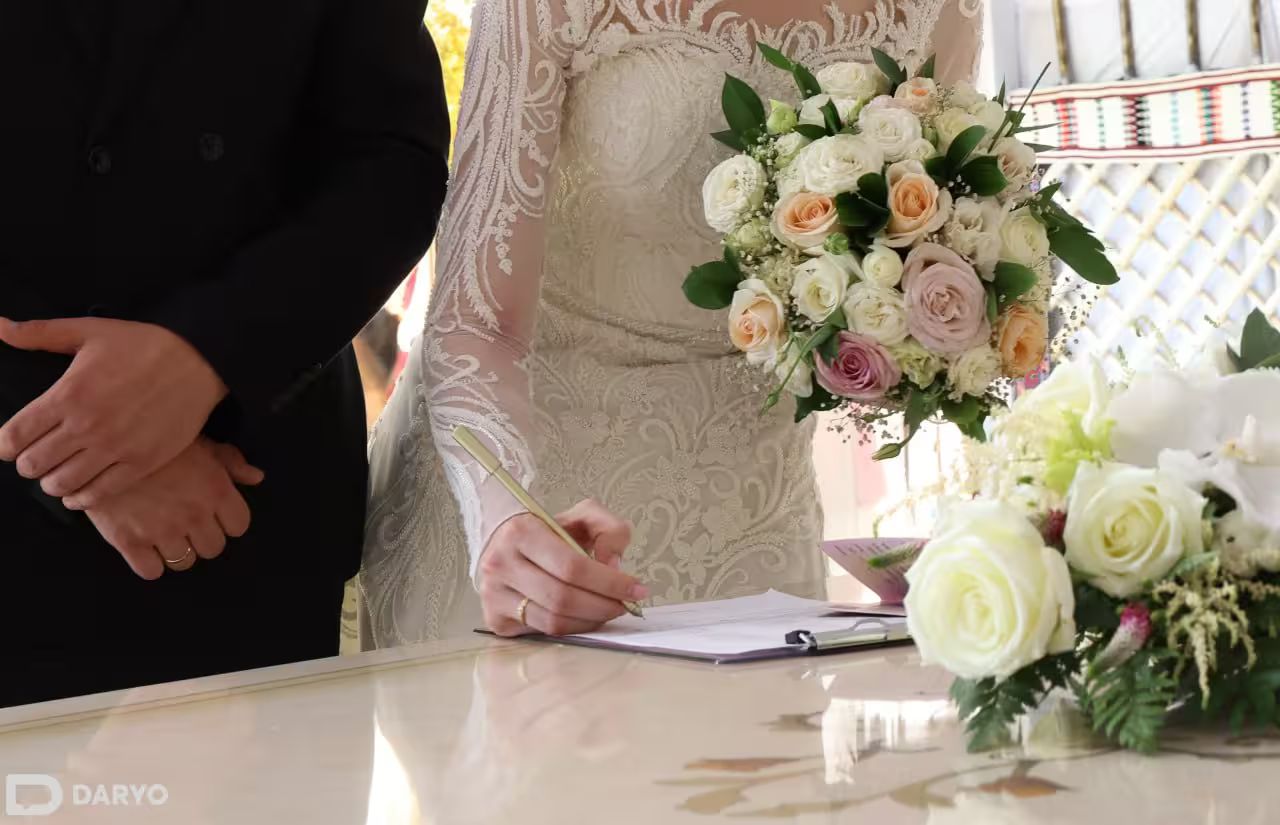The Yuksalish Movement conducted a survey from June 19 to July 3, 2025, examining Uzbek citizens’ attitudes towards wedding traditions, expenses, and their impact on family budgets.
The survey included 1,247 participants from all regions of the country, with 34.3% aged 18-30, 35.5% aged 30-45, and 30.2% over 50 years old.
Key findings include:
The survey reveals a significant gap between the income levels of most families and the actual or planned wedding expenses.
The distribution of respondents’ average monthly family income shows that a considerable portion, 81.24% (particularly in the regions), report a family income ranging from 5 to 12 million soums per month.
When asked about the approximate amount spent (or planned to be spent), respondents provided the following answers:
Planned or actual wedding expenses often (65.2% of total respondents) range from 50 to 100 million soums or higher. This is equivalent to a family’s annual income, and sometimes exceeds it.
Consequently, the vast majority of respondents do not cover expenses from their own savings. The main sources of funding are:
“This indicates that weddings are a colossal financial burden that does not correspond to the current income of many families and puts them into debt, creating risks for the financial stability of the young family at the very start of its life or for the parents,” the survey report states.
When asked about the reasons for high expenses, respondents could choose multiple answers, most often citing external factors rather than their own desires.
“Pressure from society/obligation to show off” was cited by 46.11% of respondents, making it the dominant reason. This reflects a deeply rooted cultural perception of weddings as public events where status is assessed by society. The fear of “shame” and the desire to “make a good impression” force families to spend more than they can afford.
“Wishes and dreams of the young” was cited by 31.36% of respondents, while “Wishes and dreams of the parents” was cited by 29.03%. Often, the older generation insists on lavish celebrations, viewing it as a fulfillment of their own ambitions and a duty to society and relatives.
“Requirements from matchmakers”: This factor also plays a significant role, creating a “race” between two families, according to 16.6% of respondents.
Thus, high wedding expenses are less a choice of the newlyweds themselves and more a consequence of immense social pressure and expectations from the older generation and society as a whole.
To the question, “Do you think that the environment puts pressure on families, forcing them to hold expensive weddings?” respondents’ answers demonstrate a division of opinions in society, but with a slight bias towards acknowledging the existence of pressure.
Although the largest group considers wedding expenses a personal choice, half of the respondents directly or indirectly confirm that the social environment puts pressure on families to hold expensive celebrations. This indicates an internal conflict in society: on the one hand, there is a desire for freedom of choice, and on the other, a strong influence of entrenched traditions and expectations. The results emphasize that the perception of pressure is not homogeneous, but the problem of its existence is relevant for a significant part of the population.
Regarding the question of “What should a wedding be like?”, the majority (39.62% of respondents) chose the options “Modest” or “Average, with close relatives,” while the option “Lavish, luxurious” was chosen much less frequently (6.66% of respondents).
Many respondents (44.51%) agree that lavish weddings are a “cause of extra stress and debt” and express regret over the money spent.
“This means that there is a clear understanding in society of the irrationality of lavish weddings and a strong desire to hold them more modestly. However, this rational approach cannot overcome the barrier of social norms and traditions. People are trapped: they do not want to spend, but they are forced to do so,” the survey authors note.
Given a choice, respondents would prefer to invest money in education, housing, travel, health restoration, or business investments.
The survey revealed that instead of lavish weddings, residents of Uzbekistan are willing to invest money in the future – in education, housing, health, or business development.
To the question, “In your opinion, how can the attitude towards wedding expenses be changed in your region?” the majority sees the answer in the introduction of administrative measures, educational work, and increasing the financial literacy of the population.
The following changes receive the most support:
It is noted that there is a public demand for reforming and simplifying wedding traditions. People are ready to abandon the most expensive and tiring elements of the celebrations.
“Modern wedding expenses in Uzbekistan are the reason why families fall into debt, which negatively affects their starting opportunities. The main driver of extravagance is not personal desire, but powerful social pressure, the cult of ‘showing off,’ and the expectations of the older generation.
In society, there is a conflict between a rational understanding of the harm of excessive spending and an irrational adherence to traditions due to fear of condemnation. The population, for the most part, is ready to simplify wedding rituals and supports the idea of reducing the scale of celebrations and related events,” the article states.

